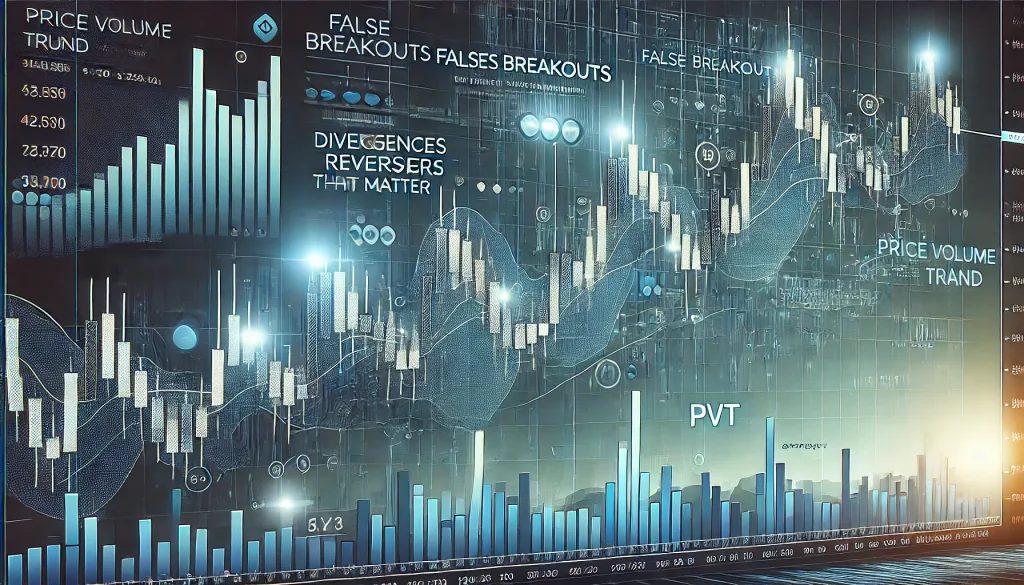The Hidden Power of Price Volume Trend and Take Profit Orders: The Insider’s Guide to Trading Success

Why Most Traders Miss the Big Picture (And How You Can Profit Instead)
If you’ve ever watched a seemingly perfect trade slip away faster than your motivation on a Monday morning, you’re not alone. The key to surviving in Forex isn’t just about predicting market direction—it’s about knowing when to get in, when to get out, and how to read the real signals behind price action. Enter the Price Volume Trend (PVT) indicator and the art of take profit orders—two underrated strategies that can turn chaotic trades into precision plays.
Let’s uncover the ninja tactics, underground trends, and expert-level hacks that separate struggling traders from those who consistently outsmart the market.
The Secret Language of Price Volume Trend (PVT): What the Charts Aren’t Telling You
Most traders rely solely on price movements, but that’s like trying to judge a book by its first page. Price Volume Trend (PVT) reveals the hidden pressure behind price moves by incorporating volume—showing whether a trend has the real muscle to continue or if it’s about to collapse like a house of cards.
How PVT Works (And Why It’s Smarter Than RSI and MACD Combined)
Unlike RSI, which only measures overbought/oversold conditions, or MACD, which lags behind real-time momentum, PVT tracks volume-weighted price movement, helping you spot:
- False Breakouts: When price spikes but PVT doesn’t confirm the move, it’s usually a trap.
- Hidden Reversals: If price stalls but PVT is still climbing, a continuation may be brewing.
- Divergences That Matter: While everyone’s chasing basic MACD divergences, pro traders use PVT to confirm true shifts in momentum.
Underground Tip: The “Smart Money Footprint” Strategy
Ever noticed how sometimes price moves without much volume? That’s a sign of weak hands getting tricked—not real institutional moves. Smart traders track PVT against major price levels (like Fibonacci zones or psychological numbers) to see where the real money is flowing.
???? Pro Move: If price reaches a key resistance but PVT is falling, big players aren’t buying into the hype. That’s your cue to avoid the FOMO and wait for a better setup.
Take Profit Orders: The Overlooked Weapon of Smart Traders
Think of take profit orders like setting an automatic escape plan for your trades. But instead of using random levels, let’s get strategic. Here’s what most traders get wrong:
- They Set Arbitrary TP Levels – Picking a round number like “I’ll take profit at 1.2500” is lazy trading.
- They Ignore Market Context – If a major trendline is at 1.2485, price might never reach 1.2500.
- They Don’t Adjust for Momentum – If volume is drying up before your TP level, you might need to exit early.
The “Liquidity Hunting” Take Profit Hack
Institutions don’t just enter randomly—they hunt liquidity pools where traders have clustered stop losses or take profits. This is where you should place your exits, too.
???? How to Find These Levels:
- Look at recent swing highs/lows (these attract stop orders from retailers).
- Identify high-volume nodes on Volume Profile charts (these show where institutional orders are hiding).
- Watch for order book imbalances (if buy orders disappear near your TP, you may want to take profit sooner).
✅ Pro Move: Combine your take profit order with PVT confirmation—if volume is surging into your TP level, hold a bit longer. If it’s drying up, exit early.
Advanced Strategy: The “Stealth TP Pyramid” for Max Profits
Rather than setting a single take profit, pro traders use pyramid-style TP exits:
- TP1 (Partial Exit at +30 Pips) – Lock in quick gains and reduce exposure.
- TP2 (Break-Even Move) – Adjust your stop loss to breakeven to protect capital.
- TP3 (Full Ride to Institutional Liquidity Zone) – Ride the rest of the move with confidence.
???? Why It Works:
- Protects against sudden reversals.
- Locks in guaranteed profits.
- Keeps you in the game for major trend moves.
Final Thoughts: Trade Like an Insider, Not a Retail Rookie
The combination of Price Volume Trend (PVT) and intelligent take profit orders gives you a strategic edge over most traders. By following volume-weighted signals and setting stealth TP levels, you can navigate Forex like an institutional pro—not a retail gambler.
???? Ready to level up? Get exclusive, real-time market insights, expert analysis, and high-impact trading tools with StarseedFX:
???? Latest Market Updates: https://starseedfx.com/forex-news-today/
???? Advanced Forex Courses: https://starseedfx.com/free-forex-courses
???? Elite Trading Community: https://starseedfx.com/community
???? Smart Trading Tools & Analytics: https://starseedfx.com/smart-trading-tool/
—————–
Image Credits: Cover image at the top is AI-generated
PLEASE NOTE: This is not trading advice. It is educational content. Markets are influenced by numerous factors, and their reactions can vary each time.

Anne Durrell & Mo
About the Author
Anne Durrell (aka Anne Abouzeid), a former teacher, has a unique talent for transforming complex Forex concepts into something easy, accessible, and even fun. With a blend of humor and in-depth market insight, Anne makes learning about Forex both enlightening and entertaining. She began her trading journey alongside her husband, Mohamed Abouzeid, and they have now been trading full-time for over 12 years.
Anne loves writing and sharing her expertise. For those new to trading, she provides a variety of free forex courses on StarseedFX. If you enjoy the content and want to support her work, consider joining The StarseedFX Community, where you will get daily market insights and trading alerts.
Share This Articles
Recent Articles
The GBP/NZD Magic Trick: How Genetic Algorithms Can Transform Your Forex Strategy
The British Pound-New Zealand Dollar: Genetic Algorithms and the Hidden Forces Shaping Currency Pairs
Chande Momentum Oscillator Hack for AUD/JPY
The Forgotten Momentum Trick That’s Quietly Dominating AUD/JPY Why Most Traders Miss the Signal
Bearish Market Hack HFT Firms Hope You’ll Never Learn
The One Bearish Market Hack High Frequency Traders Don't Want You to Know The

